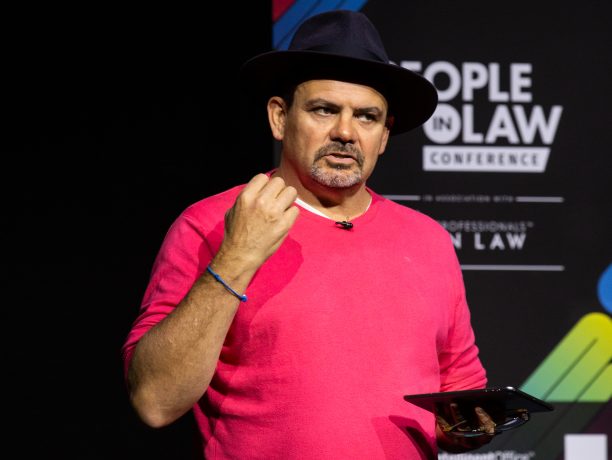The best way to develop a successful hybrid working model is to build a “remote-first” culture, according to an organisational culture expert.
Brett Putter, CEO at CultureGene, told delegates at this year’s People in Law Conference that firms needed to develop systems and processes that were better aligned to organisations that are fully remote if they want to overcome the common hybrid working challenges.
“Employees expect firms to provide a new operating system for them,” he said. “The old operating system [set up for office work] isn’t going to work.”
“The challenge you face is that most of your bosses don’t get this.
“’Remote working’ has negative connotations. ‘Remote-hybrid’ is better.”
He said that HR teams were asking the wrong question – “how do we encourage people in to the office?” – whereas they should be asking, “how do we set up work so people can be more productive?”.
“People have a weird recollection of how the office was [pre-pandemic],” he said, stating that organisations had forgotten about the office politics and silos that often developed, and were looking at office work through rose-tinted spectacles.
He said that frequent meetings were not necessary for those who preferred to work remotely, who he suggested were more productive when they worked “asynchronously”.
Putter has studied companies with remote working models and has identified nine factors for successful remote working, which can be applied to hybrid organisations:
1. “Process-ize” – develop processes for all tasks
2. Documentation – ensure all staff document what they do and store these centrally
3. Communication
4. Social connection and community
5. Transparency and trust
6. Results and outcomes-based leadership – managers that care about results, not the hours worked
7. Recruitment and onboarding processes
8. Wellbeing
9. Being “deliberate” about culture development.
He said the most successful remote-first firms have developed processes for online meetings that staff must adhere to. The purpose of the meeting; who needs to be there and why; the role of each participant; and tasks for each participant to complete before the meeting, are circulated before a meeting is arranged, with all documentation stored in a central knowledge base for people to access when needed.
Successful remote and hybrid firms also provide information digitally and encourage people to read it in their own time, rather than telling them in a meeting.
Putter said that developing a “strong and functional” hybrid working model “will take around 18-24 months if you do it properly”.
A firm might also require a rethink of how people are managed, with Putter saying that micro-management doesn’t work in a hybrid working culture.
“The leaders who led well pre-Covid may not lead well post-Covid,” he said.











